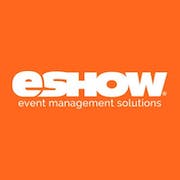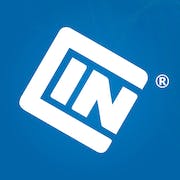Looking for the best mobile event app? Our buyer's guide has got you covered! Explore key features and benefits to make an informed decision for your next event.
Event planners face a challenge to provide seamless experiences for attendees while juggling logistical hurdles. Without the right tools, this monumental task can be incredibly daunting. Fortunately, mobile event apps have revolutionized how event planners approach event management, offering an all-in-one solution for streamlining communication, enhancing attendee engagement, and improving overall event success. However, not all event applications are created equal, and choosing the wrong one could lead to disastrous results. This buyer's guide will provide you with insights into the key features, considerations, and best practices you need to elevate your event management game.
What are mobile event apps?
These are software applications designed to help event organizers manage attendee engagement during events such as conferences, trade shows, and exhibitions. These apps can be used to build a custom event schedule, provide information about speakers, send push notifications to attendees, facilitate in-app messaging, and provide exhibitor information. Their purpose is to make event management and participation more streamlined, convenient, and customizable. Here are the common use cases:
- Creating and managing event schedules and agendas
- Providing attendees with speaker information, bios, and session details
- Enabling networking and social interaction among attendees
- Facilitating better communication between attendees and event organizers
- Providing exhibitor directories, maps, and information
- Allowing attendees to create personalized event schedules and agendas
- Providing interactive features and floor plans to help navigate the event space
- Gathering and analyzing data on attendee engagement and behavior
Various companies across different industries can make use of these event platforms. Trade shows and conferences are the most common places where they are used. Additionally, companies that host product launches, recruitment events, and training sessions can also benefit from them.
Top benefits of using mobile event solutions
Companies need effective and innovative ways to engage with their audiences an one proven method is through the use of mobile event programs.
Here are some of the main benefits:
- Increased engagement: Mobile event software offer businesses a platform to connect with their attendees in real-time, allowing them to engage with their audience before, during, and after the event. This can lead to a higher level of interaction and engagement, which can be further enhanced through push notifications and personalized messaging. In the US, around half of all people who use the internet access it via mobile devices. So, if you reach out to them with a mobile event app, you can increase your visitorssignificantly.
- Improved event management: They allow businesses to streamline their event management processes by providing tools such as online registration, ticketing, scheduling, and live polling. This can save significant time and resources, making it easier for businesses to manage their events and keep attendees informed and engaged.
- Enhanced attendee experience: Mobile apps can significantly improve the attendee experience by providing useful information such as event schedules, speaker bios, maps, and social networking features. Additionally, mobile event apps can offer attendees the ability to participate in live polls, Q&A sessions, and contests, creating a more interactive and engaging experience.
- Increased brand exposure: They can also provide businesses with an additional platform to promote their brand and product offerings. With custom branding options, businesses can showcase their logos and images throughout the app, making it easier to recognize and engage with the brand.
- Valuable data insights: These solutions can help businesses gain valuable insights into attendee behavior and preferences. By tracking data such as session attendance, speaker ratings, and survey responses, businesses can optimize future events and marketing strategies.
10 key features of mobile event software
These event solutions offer a range of features and benefits to both event managers and attendees, making the event experience more interactive, personalized, and engaging. In this section, we will highlight and list 10 of the common functions:
1. Event schedule – One of the most common features of mobile event apps is the event schedule. This tool allows attendees to view the schedule of events, including the date, time, location, and description of each event. Attendees can also create a personalized schedule, set reminders, and get alerts for upcoming events.
2. Networking – Networking is an integral part of any event, and these applications make it easier for attendees to connect and interact with each other. Additional features such as attendee profiles, messaging, and matchmaking algorithms allow attendees to find and connect with like-minded individuals or potential business partners.
3. Live polling – Mobile solutions also offer live polling, which allows event organizers to gather feedback from attendees in real-time. This element can be used to gather opinions on speakers, sessions, or content, and helps organizers to adjust the event to suit attendee needs.
4. Social sharing – In this social media age, an app for events allows attendees to share their experience on social media platforms, such as Twitter or LinkedIn. This feature helps to promote the event, increase engagement, and reach a wider audience. 36% of planners believe that engagement is their biggest challenge when switching to virtual events and according to data published from Skift Meeting, there is a growing expectation that attendees will have access to mobile event app via mobile devices at almost every event they attend these days, from big conferences to small get-togethers.
5. QR code scanning – Event management software can also include QR code scanning, which allows attendees to quickly check-in to the event or access event information. This feature eliminates the need for paper tickets, reduces wait times, and enhances the user experience.
6. Push notifications – Push notifications are another common feature which can be used to notify attendees of important updates or changes to the schedule. It keeps attendees informed and engaged throughout the event.
7. Gamification – Gamification is an innovative feature that makes the event experience more fun and engaging. It involves integrating game-like elements into the event, such as challenges, quizzes, or scavenger hunts, which attendees can participate in for rewards or prizes.
8. Beacon technology – This is a newer feature of mobile event apps that uses bluetooth to send location-based notifications to attendees. For example, attendees can receive personalized greetings or offers when they enter a specific area or exhibit.
9. Analytics – Mobile event platforms also offer detailed analytics that event organizers can use to track attendee engagement and behavior. This data can be used to improve the event experience or for post-event analysis and reporting.
10. Feedback and surveys – Finally, these apps offer feedback and survey tools that organizers can use to gather feedback from attendees post-event. This feature allows organizers to understand attendee satisfaction and make improvements for future events.
Things to consider when adopting mobile event systems
Selecting the right event management platform can be a daunting task, as there are countless options available in the market. Below we have outlined the key factors that companies should consider when making a purchase decision.
First and foremost, it is essential to identify your business goals and the objectives you wish to achieve from using a mobile event app. Whether it is to increase engagement, boost customer loyalty, or maximize ROI, your goals will shape your tool selection.
Secondly, look for systemsthat offer a user-friendly interface and are compatible with different operating systems (iOS and Android). A user-friendly interface will make it easier for attendees to navigate the app and access all necessary information. Ensure that the program is responsive and optimized for different screen sizes.
Thirdly, consider the customization options available on the platform. You want the event app to be a reflection of your brand, not just another generic application. Check whether it allows you to create a unique color scheme and add your corporate logo.
Fourthly, look for features that enable real-time communication, networking, and scheduling. Tools like a chatbot or AI-powered assistance will help attendees locate information, receive assistance, or make arrangements with fellow attendees. Integration with social media platforms is also an important consideration, as it will allow attendees to share their experiences and insights on your event.
Fifthly, look for feedback and analytics features that will provide insights on how attendees interacted with your event app. This includes factors like session attendance, location tracking, and user engagement. This information will help you to determine future event plans and identify areas for improvement.
Finally, consider the pricing model and the support services provided by the app provider. Make sure the pricing model is transparent and aligns with your budget. You might prefer to pay for the system upfront, or, alternatively, opt for a subscription-based service. Support services should also be reliable and responsive, as you will need assistance during the setup and live event phases.
Industry trends for mobile event technology
The importance of mobile event technology is reflecting significant growth this year and beyond, with advancements in mobile technology, these apps are being designed to offer unique features and functionalities that enhance the attendee experience and improve event planning and management.
First and foremost, mobile event apps are becoming more intelligent and personalized. They now use artificial intelligence to gather valuable attendee data and provide tailored content and recommendations. For instance, attendees can receive personalized schedules based on their interests, social recommendations for networking, and targeted promotions for sponsors and exhibitors.
Another trend is the adoption of hybrid event features. With a mix of virtual and in-person elements, event apps are becoming more versatile and accessible. This feature not only makes events more accessible, but it also allows attendees to engage with event content before and after the live event.
Event apps will also be leveraged for sustainability and social responsibility efforts. They are being used to reduce paper usage, minimize carbon footprints, and promote sustainable practices. In fact, they are equipped with virtual and augmented reality will become prevalent in order to bridge the gap between in-person experiences and reduce the need to travel. Around 83% of event creators use event apps. Mobile apps with AR and VR are the subsequent steps in the industry that are significant for modern-day events.
Lastly, the use of integrations will be more vital than ever. Organizers will seek to connect their event apps with other tools, such as project management software, CRMs, and marketing automation platforms, to increase their efficiency and streamline their workflow.
Mobile event apps are on the rise and will continue to be a critical tool in event planning and management. Their use will not only enhance the attendee experience but also contribute to sustainability efforts and streamline workflow.
Conclusion
In summary, technology continues to advance, the capabilities of mobile event apps will only expand, offering even more innovative solutions to common event challenges. Whether you're organizing a small corporate meeting or a large-scale conference, investing in a robust mobile event tool can significantly enhance the overall event experience, driving higher satisfaction and achieving your event goals. These packages are indispensable tools in the modern event planning landscape and by leveraging their features, you can create more interactive, efficient, and successful events that leave a lasting impression on your attendees.










